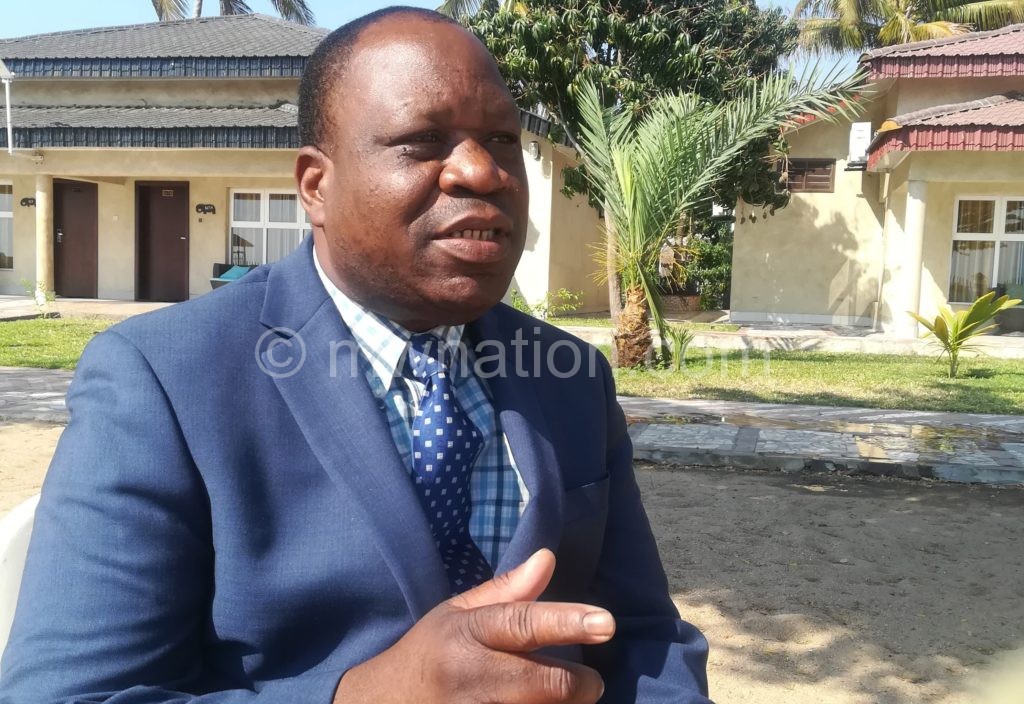Commercialising Malawi fisheries
Last week, Malawi hosted the sixth Pan African Fish and Fisheries Association (Paffa) conference, bringing together about 300 global delegates, who included academicians, technocrats, civil society members, businesspeople, development partners and fishers. KONDWANI KAMIYALA caught up with acting director of fisheries in the Ministry of Agriculture, Irrigation and Water Development Friday Njaya to explain why the meeting is important for Malawi. Excerpts:

How is the fisheries sector as at now?
When we talk of fisheries, we are talking about the capture fisheries, which involves fishermen going into the lake and catch the fish for sale after processing. Then, we have aquaculture which involves farming of the various varieties of fish, like chambo and catfish. The other category is ornamental fish which is aquarium trade. This involves the catching of mbuna which you can put in an aquarium. This is not mostly done in Malawi but in other countries. We export to other parts of the world like Japan, United States of America, the United Kingdom and other countries. The final category, though not very prominent but it was there some time back is sport fishery where people do angling for fun and competitions.
So, how are these categories of fisheries performing?
We have a decline in chambo species, when we are talking about the capture fisheries. In the 1980s we used to catch over 15 000 metric tonnes per year until the figures went down in the 1990s to around 6 000 tonnes. Right now we are going further down to 4 000 tonnes. But we have seen the past two years the levels have stabilised. There is light at the end of the tunnel; we are not yet there for there is more we have to do. That is why we are emphasising on aquaculture which has potential to grow as we have suitable land where we can have ponds. Most importantly, we have Lake Malawi which is a large body of water where we can have so many cages. The demand for fish is high. In the past, one person used to eat 14 kilogrammes [kg] of fish in a year, but that has reduced to seven kg due to the drop.
Overfishing is a problem. Are there no regulations to check it?
We have regulations but we have a major problem of non-compliance. We close our lakes to give chance for the fish to breed. Lake Malawi closes between November and December; Lake Malombe closes on October 1 up to December. We also have minimum takeable sizes for the fish so that people do not catch small fish. Regulations are there. For that matter, some areas have their own by-laws to protect fish and sustainably use the resources. In aquaculture, we also have problems. The major problem is feed. We are talking about availability of quality feed. Fish farmers are importing feed from Zambia and they are worried about the 16.5 percent VAT on feed, which leads to increased cost. We are still discussing how to go around it. But the best thing to do is to invest so that we have our own feed-making plant. This is why we are engaging the private sector so that we should not rely on importing feed. We have about 13 000 fish farmers, so the demand is there.
One of the major problems that farmers also raise out there is the lack of fingerlings. How can we go around it?
Indeed, we lack hatcheries to bring fingerlings, which farmers can access to raise in their ponds. We need good fingerlings. We need to start with good young ones so that we have good fish breeds. Within six or eight months, the fingerlings will have matured for farmers to sell. On aquarium trade, we are a bit conservative as we already have three investors to trade in ornamental fish.
We are moving into the direction of commercialisation of our fisheries. How far are we going?
It all starts with revising the policy on fisheries. The 2001 policy was dwelling more on subsistence fish farming. While maintaining the small scale fish farming, we have to go commercial as well. That will help us increase fish production. That is why in 2016, government approved a revised Fisheries and Aquaculture Policy. We are in the course of implementing the policy. We have Maldeco on the ground, producing more fish now and getting more cages for the quality fish they supply through their outlets and supermarkets. We have two other potential investors as our lake is the greatest resource we have for fish industry. One of them is working on feed production.
We saw the launch of three documents at this conference. How important are these?
The Minister of Agriculture [Joseph Mwanamvekha] launched the National Fisheries Aquaculture Research Agenda, which will guide all local and international researchers working here. That is necessary as there have been no coordination in our research and we need to prioritise. We also had the National Fisheries and Aquaculture Communications Strategy to help guide how we will spread messages for fishers, fish farmers, traders, processors and other players in the next five years. The other document was a report on the aquaculture value chain. There will be a project in Blantyre, Salima and Mzuzu aimed at upgrading small scale fish farmers to medium before they graduate into commercial farmers.





